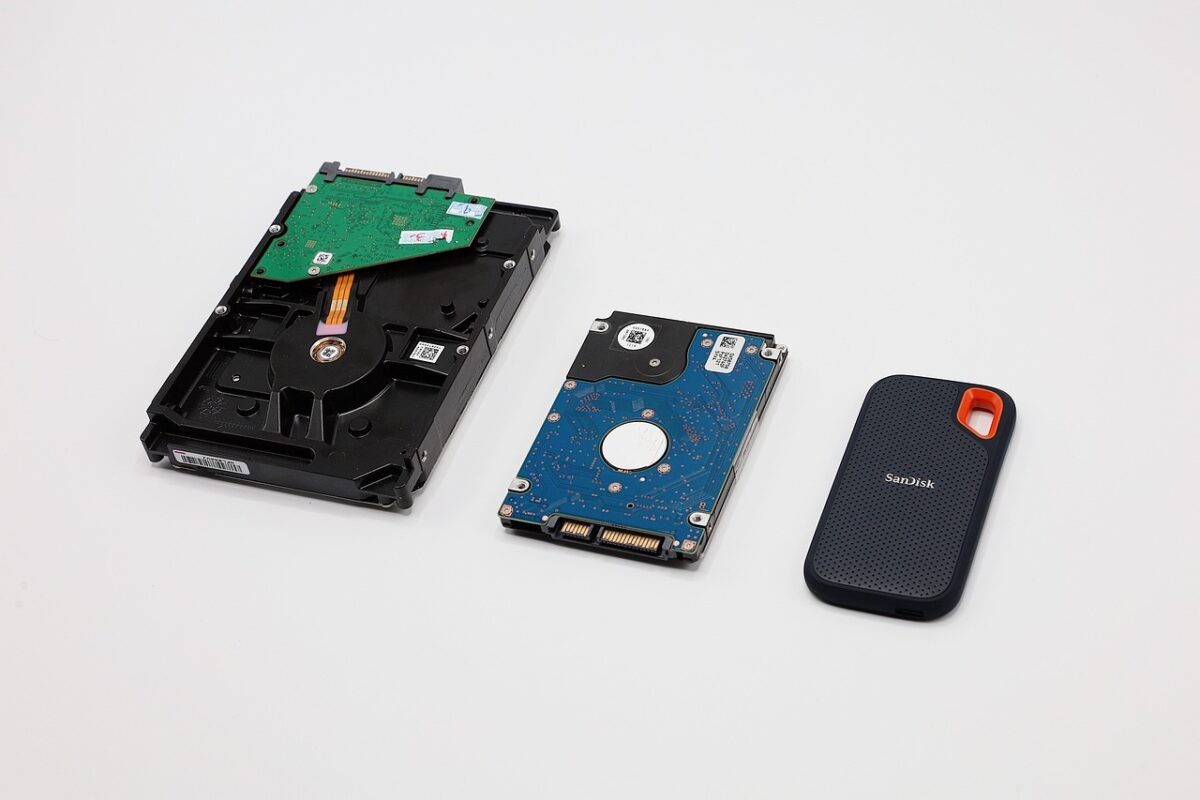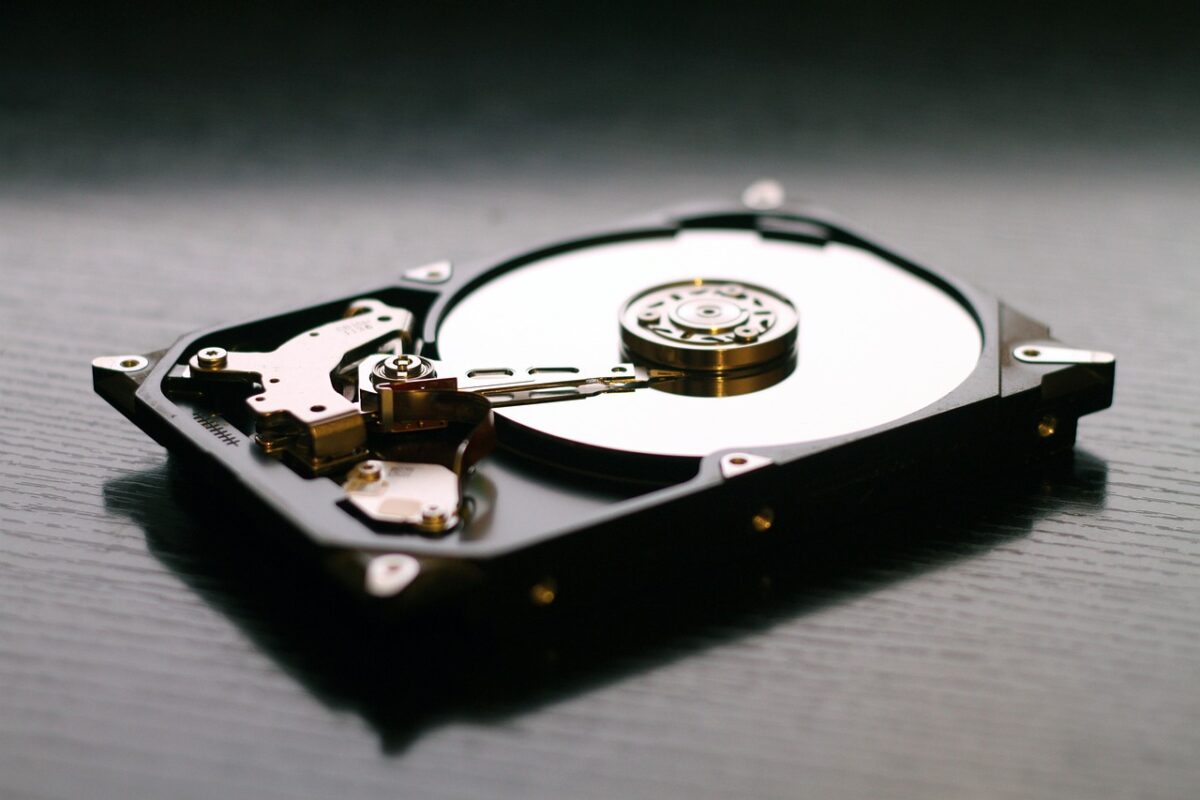Hard Disk Storage or SSD: what to choose for PC data storage? An HDD, that is, a traditional hard drive, which is less expensive or an SSD, a solid-state electronic “disk,” also known as an SSD?
The choice is determined not only by storage speed but also by the type of files to be stored, the budget, or the type of device (such as a tablet or desktop gaming pc).
Some PCs allow
both storage options
.
Below are all the main differences and how to choose them.
Sommario
- 1 SSDs and HDDs: shape and size limitations
- 2 Fastbrain offers a wide selection of products at the best prices
- 3 Drive and speed: what does it depend on?
- 4 Is SSD faster?
- 5 SSD and HDD: advantages and disadvantages according to the PC
- 6 Disadvantages of SSD
- 7 The main advantages of an HDD:
- 8 Disadvantages of HDD
- 9 Which HDDs and SSDs to buy?
- 10 Can dual memory (HDD and SSD) systems be purchased?
- 11 Why choose Fastbrain
- 12 Contact us for a free consultation
SSDs and HDDs: shape and size limitations
L’
hard disk storage
literally means “hard disk storage.”
Storage defined
SSD
means Solid State Drive and has the same function as HDD: to store data, applications and boot systems, with the goal of increasing the performance of older PCs or not overloading servers or laptops.
The two devices have the same purpose but different design.
The technology behind SSDs is called NAND Flash and does not require power to store data.
HDDs, on the other hand, are based on a technology that uses rotating magnetic disks, equipped with a moving head that is used to write and read data.
It is precisely the moving parts of HDDs that expose them to greater failure due to, for example, heat, cold or shock and vibration.
Another advantage of SSDs is the absence of size and form limitations, something that affects classic hard drives.
The latter, allow a higher speed of access to data stored at the outer ends than at the middle because they are circular in shape.
SSDs do not have this limitation in form, and the information access time is identical in each part.
Data fragmentation
Another element that negatively affects HDDs is data fragmentation, which is inevitable over time.
Fragmentation means that the stored data is literally fragmented, divided into the various spaces or sections of the disk.
This breakdown generates the slowdown in PC performance precisely because data access takes longer.
Have you ever done “defragmentation” of the hard disk? It is just to speed up the data access function.

Fastbrain offers a wide selection of products at the best prices
Consumer electronics, audio devices such as headphones and earphones, TVs, Notebooks, printers, tablets, computer hardware such as RAM, motherboards, HDDs and SDDs, and more.
The B2B area is reserved for companies and VAT holders, the prices you will find within the area are discounted and reserved for business customers.
Sign up for B2B areaIn the Store you will find a selection of the best brands and the most competitive prices on the market.
access the storeDrive and speed: what does it depend on?
The factors that determine drive speed are different; tests have revealed better performance of SSDs in reading, as much as 20,000% over high-performance hard drives.
Is SSD faster?
The major difference between the SSD (solid-state drive) and the HDD – Hard disk Storage – lies in the greater speed of the former due to the absence of moving mechanical parts.
This structure of it makes writing and reading a memory chip far faster.
SSD and HDD: advantages and disadvantages according to the PC
Here are some practical examples:
- SSD, solid-state disk, as mentioned, featureselectronic storage that has the advantage of eliminating mechanical damage due to displacement, shock, and environmental factors such as temperature changes.
- It uses low-latency flash memory, similar to that in smartphones and digital cameras;
- Data are stored on SSD chips erased and used as needed.
The following are the main advantages of an SSD:
- Faster access to data. The overall loading time is faster.
- Longer service life than HDD. Having no moving mechanical parts, the solid disk is less prone to damage from dropping or other factors.
- Lightness. The SSD has less weight than an HDD and is therefore perfect for laptops and tablets.
- Quietness and freshness. The very fact that there are no moving mechanical parts allows the solid disk to be less noisy, avoiding the din due to the heating of mechanical parts.
- Less data fragmentation. This allows the solid disk to store data in narrower but larger sections of memory than HDDs.
Disadvantages of SSD
If cost can be considered a disadvantage, it can be said that it is undoubtedly at least two or three times higher than HDD.
This is because the technology with which it is made is more sophisticated.
- Two other disadvantages might be durability and capacity, which are potentially lower than an HDD because they are calibrated to frequent storage and retrieval of numerous small data files at startup.
The main advantages of an HDD:
The traditional hard disk works by storing data on multiple metal disks covered with magnetic material. The operation is properly mechanical:
- The disks rotate until they are contiguous, so that certain data segments or blanks align with a magnetic recording head, which is apt to read and write bits of data on the assigned segments.
- The noncontiguity of these segments serves to maximize storage volume.
The main advantages that users recognize of this system are:
- Increased storage capacity. HDDs can easily go up to 2TB or even larger storage capacities; an SSD to date ranges between 128 or 256 GB because of the complex layout with which the electronic circuits are designed.
- Lower prices. Generally, because flash memory is still quite expensive, HDDs cost about half as much as SSDs of the same size.
- Duration. Traditional hard drives last longer because the process is more physical than electronic, barring serious damage to the drives. Operation, likewise, is more reliable and data storage easier than solid disc.
Disadvantages of HDD
We have already listed them substantially, but let us summarize.
- Slowness is the main gap probably. It does, in fact, take longer to access data, while the SSD due to its flash memory will be faster.
- Noise and heaviness. Two elements that negatively characterize the HDD, due as explained many times precisely to the mechanical circuits. In addition, heat generated by movement and higher battery consumption are detrimental to these systems.
Which HDDs and SSDs to buy?
In order not to waste your money, it is good to get reliable systems with the right features; for example, as recommended by experts
Lenovo
, with regard to the HDD you should pay attention to performance based on revolutions per minute:
“The two most common RPM rates in today’s hard drives are 5,400 RPM and 7,200 RPM. There are HDDs that operate at much faster RPMs, but they are generally not used in consumer PCs.
Will a 7,200 RPM HDD run faster than a 5,400 RPM one? Yes. Thus, buying a 7,200 RPM HDD is one way to improve the performance of your new PC without paying the extra cost of a solid-state drive.
However, experts disagree that the higher RPM rate translates into a proportional increase in data access speed. Some say the actual difference is smaller, with 5,400 RPM disks running at 100 MB/s and 7,200 RPM disks running at 120 MB/s.”
(Source: Lenovo)

Can dual memory (HDD and SSD) systems be purchased?
There are systems (see Lenovo) that use both storage technologies; specifically, they are configured with an SSD to allow fast access to some data-for example, at device startup-and a hard disk for long-term storage and less frequent access.
The 2 main advantages of this dual storage system are:
- Fast, almost immediate startup times (with quick access to recent files);
- Excellent storage capacity thanks to the HDD, on which large files-photos, games, videos-can be stored with less frequent access.
Do you need advice on PCs, SSDs and HDDs suitable for your needs? Contact us for a free consultation.
References:
https://it.crucial.com/articles/about-ssd/ssd-vs-hdd
https://www.kingston.com/it/blog/personal-storage/ssd-vs-hdd-differences
https://www.lenovo.com/it/it/faqs/pc-life-faqs/ssd-vs-hdd/
Why choose Fastbrain
Fastbrain Engineering Ltd. Certified Partner of leading Technology Players including Brother, Lenovo, Synology, Graetz, SiComupter offers customized purchasing solutions tailored to the needs of professionals. It offers, in addition, pre- and post-sales support, including operational rental.
We are a central player in ICT wholesale distribution and one of the leading players throughout the country in the IT and technology product distribution market. A key feature and competitive advantage is the selection of top brands and leading products in the most popular product categories.
Info:
info@fastbrain.it
| Tel 011.0376.054


